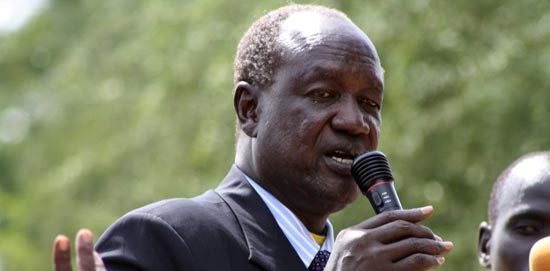Governor Kuol Manyang Juuk of Jonglei State has vowed not to appear before the National Legislative Assembly after being summoned to answer questions pertaining to security threats in his state.
The Specialised Standing Committee of Defence, Security and Public Order had summoned him to appear before the committee this coming Monday.
The governor said that the transitional constitution gives the national assembly powers to oversee performance of the national government institutions only, but not the states which are under the jurisdiction of state legislative assemblies and the national council of states.
Article 59 (e) of the constitution states that “The Council of States shall be competent to request statements from Governors and national Ministers concerned regarding effective implementation of the decentralized system and devolution of powers and any other issue related to the states.”
Governor Kuol said that in its summons the legislature referred erroneously to a constitutional article that actually only gives the legislature competency to summon national ministers. He was presumably referring to article 57, which names the functions of the National Legislative Assembly including the power to “interrogate ministers about their performance or the performance of their ministries.”
The committee issued the summons because there is a significant national defence force deployed in the state amid continuing threats from the Yau Yau rebellion and intertribal conflicts. Other matters of concern to the committee reportedly include the migration of armed pastoralists with their herds into Central and Eastern Equatoria States.
Committee Chairman Hon. Aleu Ayieny Aleu explained in a letter to the governor that the summons was not meant as a violation of competences or to encroach on Kuol’s constitutional powers: “Parliamentary summons are not inquiries to apportion blames of demonization, but fora by which citizens and their representatives can exercise their constitutional rights of making public officials accountable,” he said.
Kuol pointed out, however, that he has reported sufficiently on his actions, including to the council of states last year, and at the second governors forum and at a briefing to the national council of ministers.
By Yobu Annet




